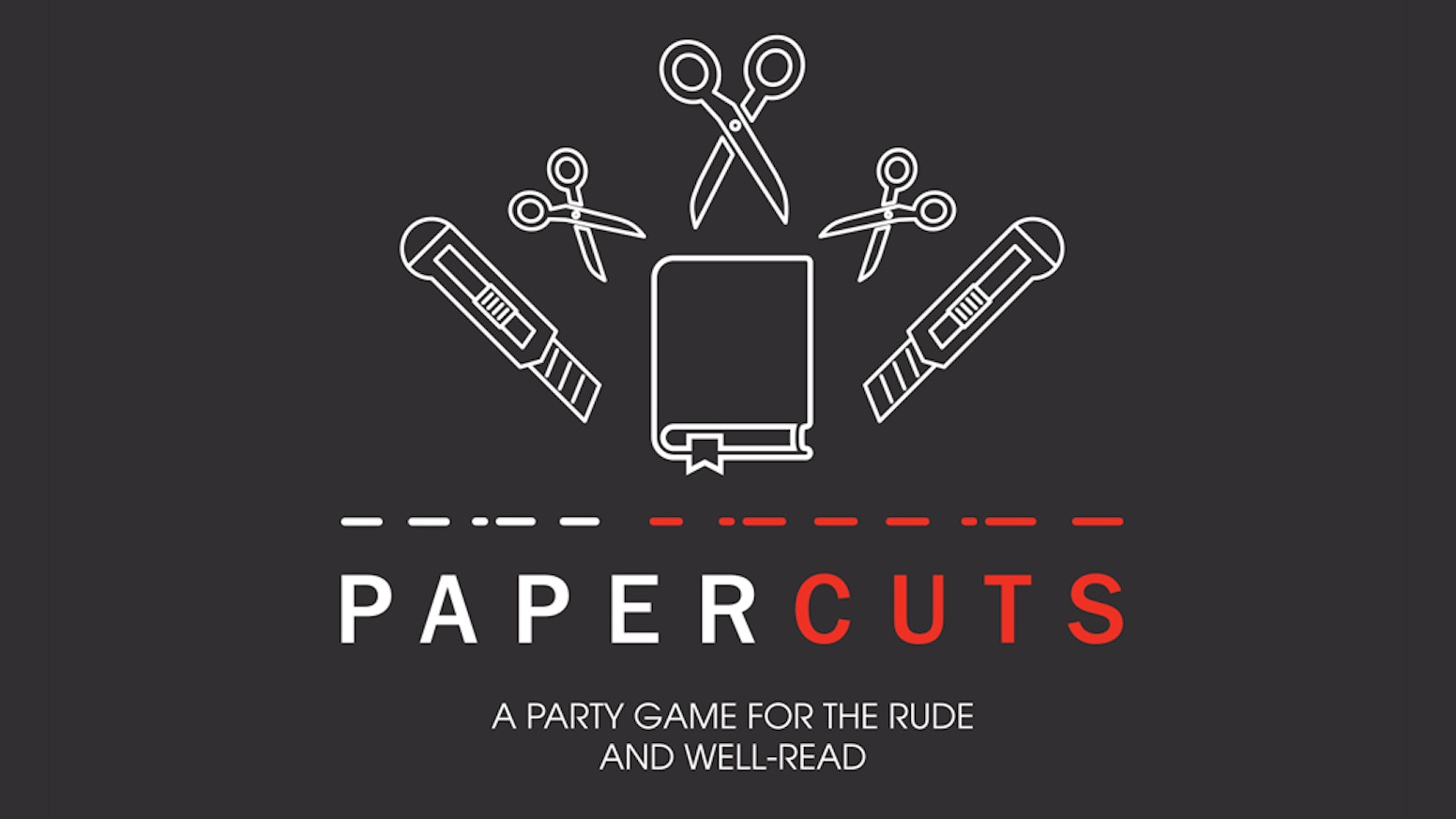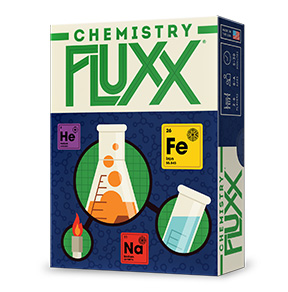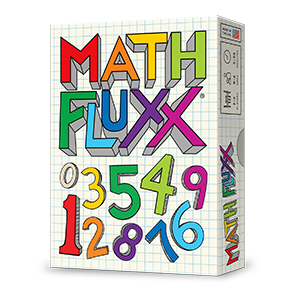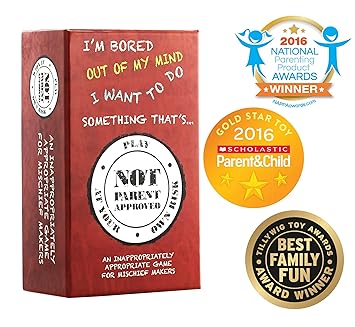Friday, November 24, 2017
10 Things We're Thankful For This Year
Happy Thanksgiving, everyone! It is time for our annual post of three things everyone on staff is thankful for this year. (You can check out our list for 2015 and 2016).
It is not easy keeping up with a weekly blog, but it helps us stay dedicated knowing that you are all out there and reading our posts. It makes our day to get feedback in the comments (both here and on social media) and to see you sharing our content. Thank you for making this a worthwhile venture!
I am a huge fan of podcasts. Every week, I instantly receive new content that downloads on my phone, so no thinking required. There are really great library podcasts (which we listed here) that helps me stay current in the library/book world while I walk the dogs, clean house, go on long drives, etc.
Friday, November 17, 2017
Ready to Go Book Display: Board Games
Welcome to our series, "Ready to Go! Book Display." Once a month we'll highlight the latest or greatest for every age group that you can promote within your library or order for your collection. This month I'm going to take a break from books and feature my favorite board and card games you can circulate or use in your library.
Recommendations for Adults:
Recommendations for Teens:
Recommendations for Kids:
Recommendations for Adults:
Ages 17+ and 4-10+ Players
How well do you friends and family know you? Find out when you're in the Hot Seat.
Ages 17+ and 2-33 Players
The enclosed illustrated culture cards and thought-provoking opinion cards can actually be used to play 6 unique games. There's a version for everyone.
Ages 13+ and 1+ Players
From the makers of The Storymatic, this game can be used as a writing prompt, or a way to better get to know yourself, friends and family. This conversational game is a lifetime of memories in a little box.
Ages 17+ and 4-8 Players
In this game you are setting up your friend on a blind date. You just have to convince your friend to date your horrible character instead of the others.
Ages 12+ and 3-6 Players
Create and share lists on a variety of topics. Sometimes you'll want to match your competitors, some times you don't.
Ages 17+ and 4-8 Players
This is basically the Cards Against Humanity version for those of us that are "rude and well-read."
Recommendations for Teens:
Ages 12+ and 4-6 Players
It's your turn to make up the answers to Apples to Apples. Use the dry-erase markers to write your own response on your apple slate. Now you'll always have the perfect answer!
Ages 12+ and 2+ Players
In this twist on the original Scattergories, you aren't limited to the letter on the die. Instead you'll get a category like "Things Made of Glass" and the word BOTTLE. Now name things that are made of glass whose letters start with the letters in the word BOTTLE.
Ages 12+ and 4-12 Players
Telestrations turns the classic telephone game into a drawing game. You don't need to be an artist in this game of miscommunication. Also check out the adult (ages 17+) version with Telestrations After Dark.
Ages 8+ and 2-6 Players
The only constant in Fluxx is change and you'll never play the same way twice. Featured are the new STEM related editions, but there's a version for everyone: start with the original Fluxx or Batman Fluxx, Zombie Fluxx and more.
Ages 8+ and 3+ Players
Combine character and attribute cards to make ridiculous fights and argue over who would win.
Make sure your bookshelf is nice and level, in this 3D puzzle with 40 challenges. Need more? Also check out Cat Stax and Dog Pile.
Ages 12+ and 3+ Players
You'll need your smartphone with this game that put your internet skills and photoroll to good use.
Ages 12+ and 3-8 Players
Want to play Pictionary but hate drawing? Try this. Get others to guess the prompt by combining, overlapping, and animating special transparent cards.
Recommendations for Kids:
Ages 3+ and 2-4 Players
Help the hungry squirrel by collecting acorns in this game that promotes color recognition and fine-motor skills.
Ages 3+ and 2-4 Players
Help Mother Hen collect her chicks in this non-competitive game that promotes counting.
Ages 5+ and 1+ Players
This colorful, nature-themed memory game features the artwork of picture book author and illustrator Melissa Sweet.
All Ages and 2+ Players
This modern twist on the classic card game has players racing to end up as the awesome Cat Lady.
Ages 8+ and 4-8 Players
Inspired by Cards Against Humanity, this game is 100% family friendly.
Ages 4+ and 2-5 Players
This game inspired by the Logo programming language will sneakily teach programming fundamentals to kids.
Friday, November 10, 2017
5 Myths of Facebook that Libraries Should Know
Over the years, we've posted about how to use Facebook pages for libraries. There are so many new ways to increase your reach and build up your followers and we've been covering these from time to time. However, as the years go by, I'm realizing that there are 5 persistent myths that people keep believing.. Myths that instantly hurt library Facebook pages before they even have a chance to reach their full potential. Today, we're going to tackle each one:
You can also visit these websites for more information about using Facebook Pages:
Library Resources
WebJunction
TechSoup for Libraries
Libraries & Social Media (Facebook Group)
Small Businesses/Nonprofits Resources (which, hey, have the same resources as libraries and hence their tips are also relevant to libraries)
Mari Smith, the Queen of Facebook
Social Media Examiner (They also have a podcast and a weekly live video show)
Social Media Today (Free webinars!)
1. Libraries should ONLY post about themselves.
FALSE. Facebook is a social network, it isn't a bulletin board. You HAVE TO POST posts that will get engagement (likes, shares, clicks, or a comment). If you keep posting work only things that don't get a good response, it hurts your current post AND future posts. So, adding entertainment/fluff posts (posts that are on the common values between your library and your patrons: articles on reading, bookworm problems, fun book questions, new book info, etc. ) is NECESSARY for a successful library page. (For more information, check out The Facebook Algorithm Explained for Marketers)2. You can treat a Facebook Page like you do your Facebook Personal Account
FALSE. A Facebook personal account (where you, as a person, connect with other individuals) is NOT the same as a Facebook Page (a business account). In the order of importance, Facebook puts personal accounts higher up the food chain. People want to know what's going on with their family and friends BEFORE they learn about local businesses and Facebook acknowledges this. So, they only show a small percentage of pages to the user. If the user doesn't interact with your page, Facebook will show them less and then less of your posts. That doesn't happen when you post on your personal account. BIG DIFFERENCE. So, whatever you post needs to be engaging or it doesn't belong on Facebook. (For more info, check out the Facebook Newsfeed Algorithm History.)3. Libraries shouldn't share other posts. They should only post original content from their own library.
FALSE. Facebook likes when you share popular content that received a lot interaction -- it is proven quality content. Think about it: Facebook wants to be the place people go to all the time. If they are finding posts that are boring, they will leave Facebook. But if they keep finding stuff that makes them respond, over and over again, they will keep coming back. So, use this knowledge and follow big pages. Share those posts that are connected to the same values that libraries share with patrons. Enjoy the bump in reach (Facebook will naturally show it to more people than your original post) and know that your future posts will do better --- especially the ones which are specific to just your library. (For more info, check out How Facebook News Feed Works and Facebook Has 50 Minutes of Your Time. It Wants More.)Bonus: Not sure what pages you can share from? Here's a starter list for you:
- Goodreads
- Bookstr
- Goodwill Librarian
- Epic Reads
- Awesome Librarians
- Grammarly
- For Reading Addicts
- Book Riot
- (You can also join the Library Facebook Group, The Shareable Clique, for viral posts from other libraries that you can reshare.)
4. You can post anything on Facebook.
FALSE. You should filter everything through the lens of: Will this get a response from my patrons? Will they like it, comment on it, share it? If the answer is an obvious no, then it does not belong on Facebook. A good example is library programming. If the program is specific to a small range of people (ESL learners, parents of toddlers who are available Monday mornings, etc.) then a post about the event is already at a disadvantage. Why would anyone outside of this small range of people respond to your post? You need to find a way to frame it so it appeals to the general mass of people. Maybe you can post an adorable picture of a boy reading to a dog and causally mention this is a weekly program. Then anyone can "heart" the photo because it tugged on their heartstrings. (For more info, check out: 26 Tips for Better Facebook Page Engagement)5. You can use Facebook like you would an emailed newsletter.
FALSE. Unlike a newsletter that you can email to patrons whenever you want and it'll reach it's intended audience, Facebook doesn't work that way. The less you post, the less people will see your posts. So, monthly posts, or even weekly posts won't cut it on Facebook. You need to post daily, twice a day if you can, to keep your reach at a respectable number. And you'll need to experiment to see what times work best for reactions and what content most of your followers enjoy. Keep experimenting until your organic reach (unpaid) is consistently at 100 people or more. (For more info, check out: How Often Should I Post to My Facebook Page?)Want to Learn More?
Want to learn more about libraries and social media? WebJunction and TechSoup for Libraries is currently running a webinar series on this exact topic! I had the honor of presenting in Part 1 about Getting Started with Social Media for Your Library which will be archived. Two more are coming up soon that you can register for (and for free!): http://www.webjunction.org/news/webjunction/social-media-libraries-webinar-series.html I highly recommend checking them out and learning about social media analytics (Nov. 30th, 2017) and growing your social media platform and engagement (Dec. 19th, 2017).You can also visit these websites for more information about using Facebook Pages:
Library Resources
WebJunction
TechSoup for Libraries
Libraries & Social Media (Facebook Group)
Small Businesses/Nonprofits Resources (which, hey, have the same resources as libraries and hence their tips are also relevant to libraries)
Mari Smith, the Queen of Facebook
Social Media Examiner (They also have a podcast and a weekly live video show)
Social Media Today (Free webinars!)
Friday, November 3, 2017
5 Tricks to Make Facebook More Enjoyable
Facebook has been an invaluable tool for me with keeping up with library news, creative ideas, and the latest developments in the library world. However, I keep hearing of people saying they are leaving Facebook because it is too negative. While that certainly does happen, there are a few tricks you can employ first to decrease the negativity before you jump ship.
Facebook takes up a lot of space on your smartphone. If you want something lighter that also offers a less intrusive messaging app, I highly recommend using the Friendly for Facebook app.
Do you have any Facebook tricks? We'd love to hear about them in the comments.
1. Don't Leave Negative Groups -- Block People Instead
There are so many great librarian Facebook Groups, ranging from different topics to different group sizes. I have learned so much from them and utilized them to ask my own questions. However, as with any public group, there are trolls who will bring you down pointless rabbit holes. Instead of leaving the group, block those individuals instead. (Yes, you can block people you aren't friends with!) I have found this really handy, and was surprised at what a difference it made with just blocking a few key offenders. I am open to hear different opinions, but if people aren't being respectful, I don't need them in my news feed.2. Save the Great Posts!
One of the best parts about librarian Facebook Groups is that there are a lot of great information being shared. If you want to save a post for future reference, all you need to do is click on the time stamp of the post. It'll give you a special URL you can save and it'll bring you back to that specific post.3. Make Favorite Pages a Priority in Your News Feed
Instead of relying on Facebook to guess what is important to you, take the time to go through your liked pages and make all your favorites a priority. You will need to visit each page, click "Following", and then mark it as "See First". Now their posts will appear first in your news feed, diversifying what you see on Facebook with a great variety of the stuff you love (for me, that's library comics, blogs, local newspapers, etc.) before I even get to the top posts from family/friends and groups. (You can also make people a priority, too.) My Facebook news feed feels well rounded and fun -- and I don't have to worry about constantly liking page posts so they don't disappear from my news feed.4. Utilize the Save Post Function!
Being a librarian, there are posts that appear which I want to respond to with more depth or add a link which can be tough to do on a smartphone. I save these posts for later and then revisit them when I am on a computer. It is also useful for the interesting articles that are appearing in your news feed but you don't have time to read. You just click on the three dots and then "Save Link" or "Save Post".5. Simplify Your Notifications
Did you write a comment and now you're getting notified of everyone else's responses? You can turn that off by revisiting that post and clicking on the three dots to the upper left. You will see an option to turn off the notifications. (See image above.) Getting lots of notifications from groups? Visit their main page and turn them off (there is an option below the cover photo). Are people you are following filling up your news feed with posts you don't want to see? You can go to their page, click "Following" and mark it as "unfollow". If you want to just block certain posts from pages they keep sharing, you can click on the three dots on their shared post and directly block the page they shared from.
Bonus Tip:
Facebook takes up a lot of space on your smartphone. If you want something lighter that also offers a less intrusive messaging app, I highly recommend using the Friendly for Facebook app.Do you have any Facebook tricks? We'd love to hear about them in the comments.
Subscribe to:
Comments (Atom)



























